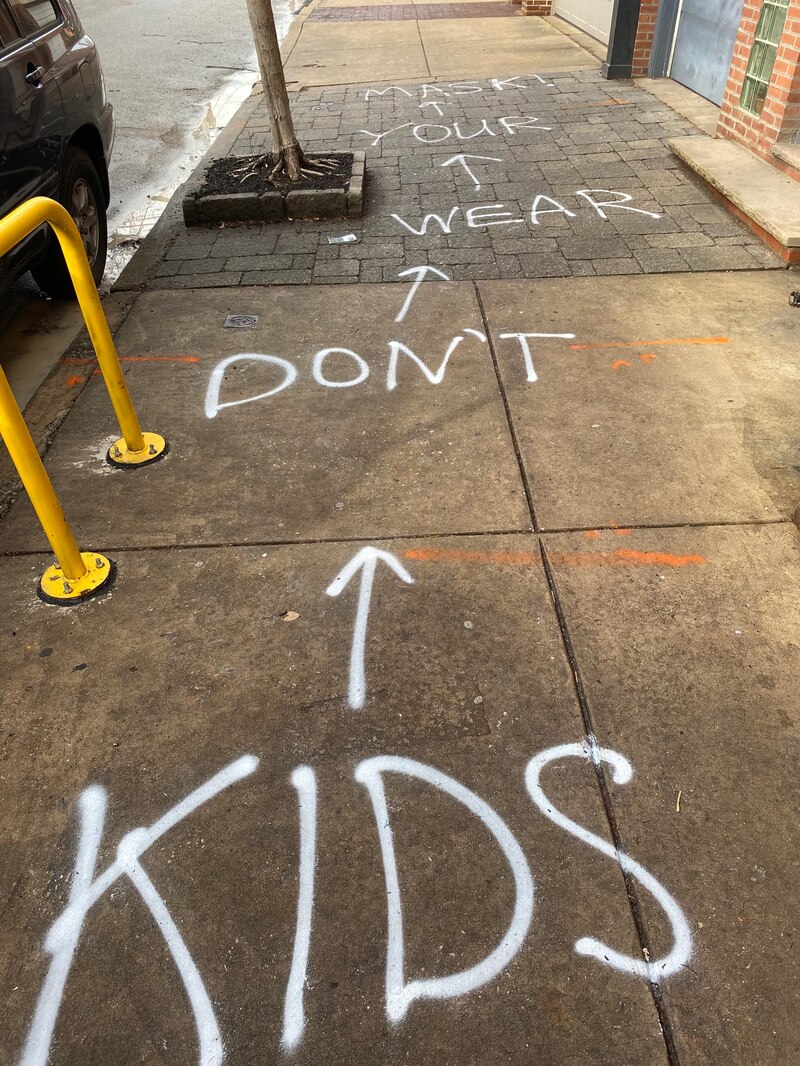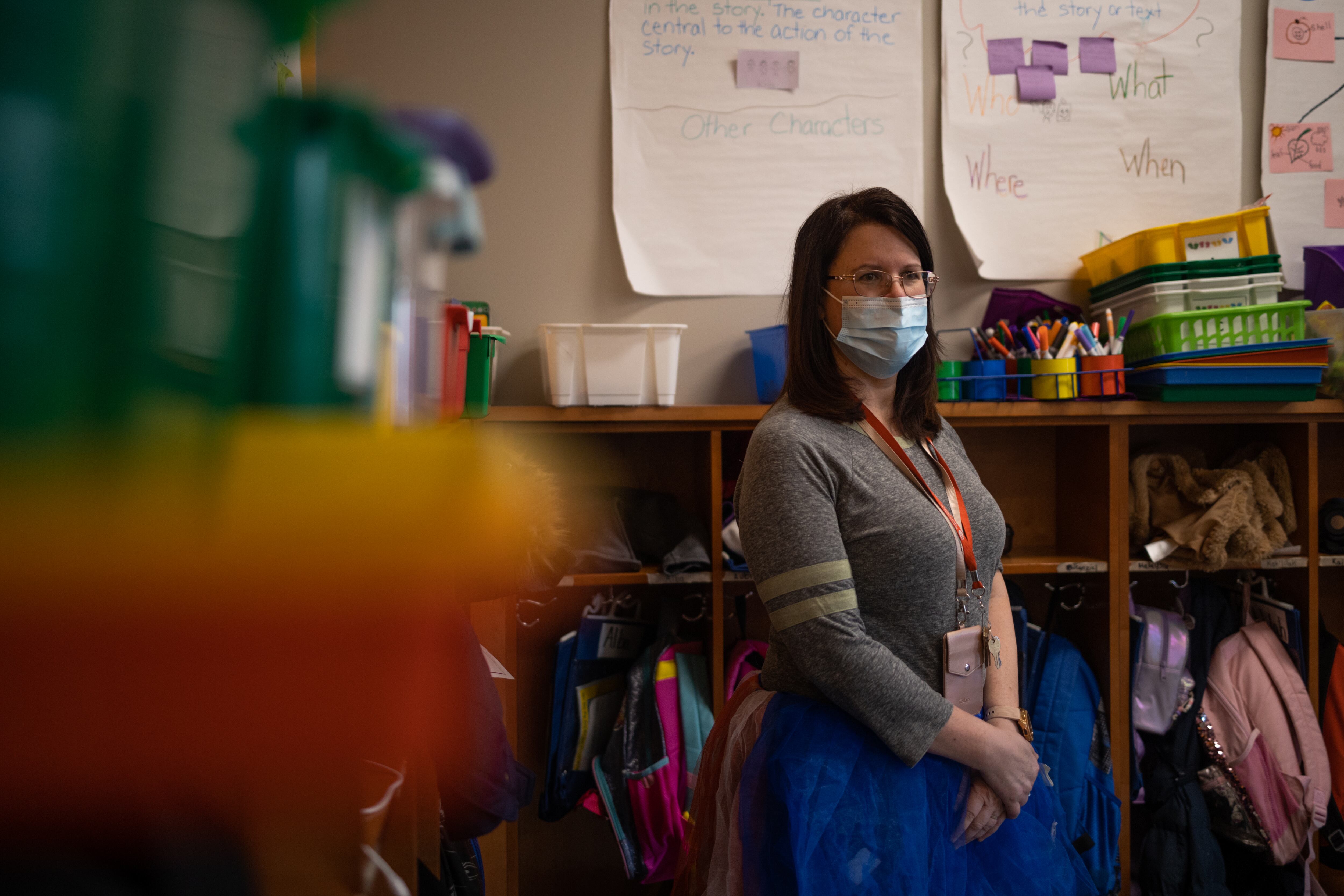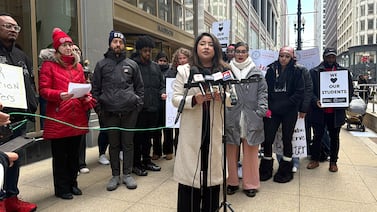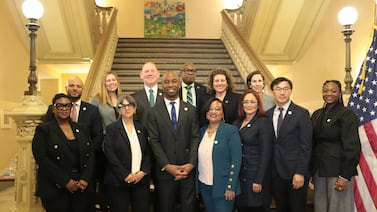Philadelphia public schools reopened this week with a requirement that students and staffers wear masks for two weeks to prevent the spread of COVID and other respiratory viruses.
The rule makes the district a distinct outlier: Fewer than 1% of school districts in the country now have mask mandates, according to the data-tracking firm Burbio. That’s down from more than 60% in the fall of 2021.
Unlike at the start of the year, when the masking policy sparked fierce criticism, school officials said they hadn’t heard much about it upon the return from winter break. But there were at least a few prominent signs of pushback: Officials found anti-mask messages painted outside two South Philadelphia elementary schools Wednesday morning. The district had them removed the same day, officials said, and police are reportedly investigating.
Yet even parents who disagree with the need for 10 days of masking are largely resigned to the policy, said Rahul Ganesan, whose children attend Meredith and Masterman.
“In practice, within the schools, I don’t think it’s so stringent that teachers are like, ‘Put the mask on or leave,’” said Ganesan, who questioned the policy at the start of the year.
Ganesan noted that schools made it through December with minimal disruptions without masking. Still, he added, “I think parents are apathetic at this point. It’s no big deal. It’s 10 days.”

Dr. Kendra McDow, the school district’s medical officer, said that she had not heard of issues in any schools regarding compliance with the mask mandate. Teachers returned to school Tuesday and students on Wednesday.
McDow said there were scattered reports from staff members Tuesday of positive COVID tests, but nothing that required pausing in-person learning. So far, “we haven’t seen any clusters” of cases, she said.
Robin Cooper, who heads Teamsters Local 502, Commonwealth Association of School Administrators, said she had heard nothing from principals about issues related to masking.
District spokeswoman Christina Clark noted that students at several high schools had been wearing masks even when there was no requirement. And Philadelphia Federation of Teachers President Jerry Jordan said the district’s policy “makes sense” to combat COVID as well as RSV and the flu.
“We have always fought for a multifaceted strategy to mitigation, and a two-week mask policy as a layered mitigation measure is pragmatic,” Jordan said.
Dale Mezzacappa is a senior writer for Chalkbeat Philadelphia, where she covers K-12 schools and early childhood education in Philadelphia. Contact Dale at dmezzacappa@chalkbeat.org.






